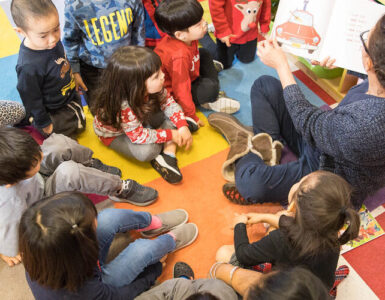Achieve60AZ, a grassroots alliance working to see at least 60 percent of adults in Arizona obtain either a degree, license or certificate by 2030, received more than $450,000 in grants to help increase educational attainment in Arizona.
As of right now, state attainment is at 45 percent and in order to reach the goal another one million Arizonans need to earn a two- or four-year degree or industry credential.
Achieve60AZ plans on using the collective $466,500 it received from the Lumina Foundation and Arizona Community Foundation to engage adult learners.
“We literally cannot achieve our goal by 2030 without engaging adult learners,” Achieve60AZ Executive Director Rachel Yanof said. “There’s actually not enough young people in that will [have] graduated from high school and will be in the higher ed system right now for us to hit the million mark.”
Achieve60AZ will seek to revamp public employee tuition reimbursement programs in Arizona and work on closing equity gaps for minority groups through the $300,000 Lumina Foundation Adult Promise grant.
“Serving adults without postsecondary certificates or degrees is essential to meeting Arizona’s state attainment goal and the national attainment goal,” Terri Taylor, Lumina Foundation deputy director for postsecondary finance, said in a statement. “We truly believe in supporting this population…This opportunity with Achieve60AZ is not only important for Arizona, but for the entire country, and we applaud Achieve60AZ’s innovative, equity-focused approach.”
According to Achieve60AZ, less than five percent of people within cities, counties and state agencies that offer tuition reimbursement programs use them.
“There’s not a lot of usage [of employee reimbursements],” Yanof said. “Our thesis is there’s a lot of people who work for cities and counties and towns that are people who either never started postsecondary, so they just have a high school diploma, or they had some college experience, but they didn’t complete.”
According to Achieve60AZ, the organization will use the grant to research, partner and support the implementation of employer-employee agreements that will help public employers use tuition reimbursement programs.
It is believed this will help address the equity gap because a majority of public entry-level jobs are held by minorities and creating reimbursement models that work for individual cities and towns in Arizona will help remove financial and systemic barriers.
Yanof said Achieve60AZ only has theories on how to create better reimbursement programs, but the organization plans to work with public agencies to figure out the best process.
“Part of what we want to do is actually ask the people that are impacted… I don’t think anyone’s ever asked employees what’s holding them back and I’m not sure that employers have always been asked themselves what would be most helpful for you all? So, we want to ask those questions,” Yanof added.
In January, Achieve60AZ received an Arizona Community Foundation grant to help communities localize the attainment goal.
Now, Achieve60AZ is working with Expect More Arizona — a movement dedicated to achieving a world-class education for all Arizona students — to engage a variety of rural and suburban communities to create locally-owned goals based on their community’s diverse cultural and economic makeup.
“Arizona is known for the diversity of our communities and its people. Understanding the unique opportunities and challenges to postsecondary attainment within each community is essential to reaching our state’s goal,” said Expect More Arizona President and CEO, Christine Thompson. “We’re happy to be a part of continued efforts to advance the attainment goal, as well as the seven other Arizona Education Progress Meter goals.”
According to Yanof, Achieve60AZ believes that local communities know their assets and resources the best and working with them to identify barriers and obstacles will make the goal more attainable.
“A million people more in Arizona need to have credentials past high school, that’s a pretty giant elephant,” Yanof said. “If ten communities across Arizona get hyper-focused on attainment… that’s really where the magic is going to happen. Not me, sitting in an office, thinking through what should happen for Yuma County.”
















Add comment